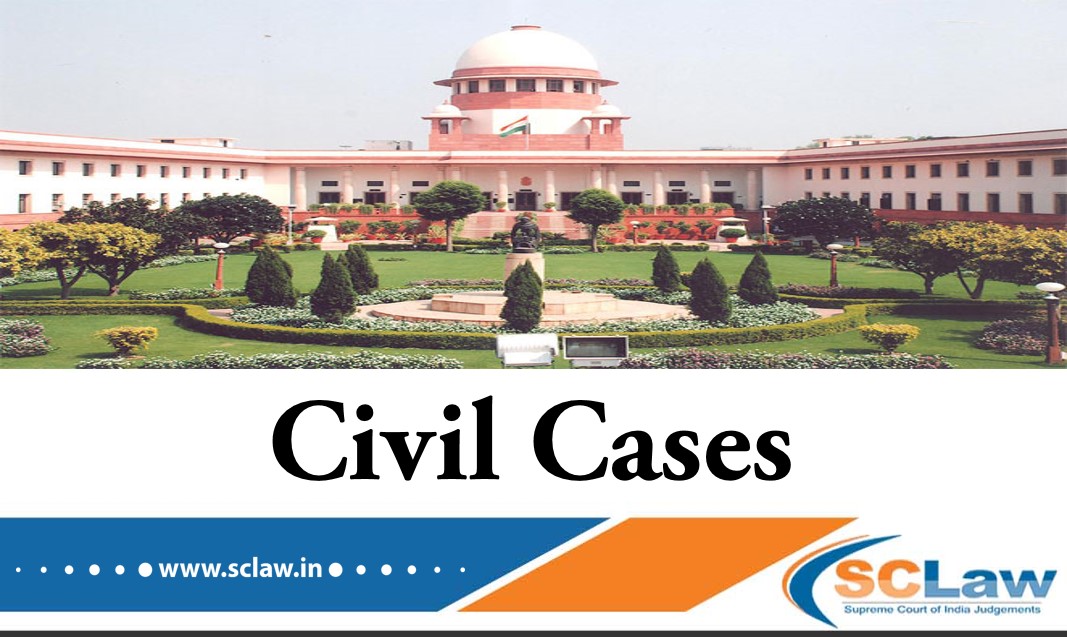Service Law—Pay Scales—Non teaching staff of Private Unaided Institutes held entitled to revised pay scales along with teaching staff.
2017(1) Law Herald (SC) 202 : 2017 LawHerald.Org 592 IN THE SUPREME COURT OF INDIA Before The Hon’ble Mr. Justice J. Chelameswar The Hon’ble Mr. Justice Abhay Manohar Sapre Civil…
Schedule Caste—Central and State Government directed to strictly enforce the provisions of SCST Act. Scheduled Castes and Scheduled Tribes (Prevention of Atrocities) Act, 1989-Non implementation of provisions—There has been a failure on the part of the concerned authorities in complying with the provisions of the Act and Rules
2017(1) Law Herald (SC) 193 : 2016 LawHerald.Org 2528 IN THE SUPREME COURT OF INDIA Before The Hon’ble Mr. Chief Justice T.S. Thakur The Hon’ble Mr. Justice Dr. D. Y.…
Indian Penal Code, 1860, S.302 & S.149–Murder–Unlawful Assembly- Common ; Object-After having held that the appellants formed an unlawful assembly carrying dangerous weapons with the common object to resorting to violence (as described in the charge) it was not open to the High Court to acquit some of the members
2017(1) Law Herald (SC) 547 : 2017 LawHerald.Org 677 IN THE SUPREME COURT OF INDIA Before The Hon’ble Mr. Justice A.K. Sikri The Hon’ble Mr. Justice Dr. D.Y. Chandrachud Criminal…
Framing of Charges—The framing of charge is not a stage, at which stage final test of guilt is to be applied.
2017(1) Law Herald (SC) 538 : 2017 LawHerald.Org 676 IN THE SUPREME COURT OF INDIA Before The Hon’ble Mr. Justice Ranjan Gogoi The Hon’ble Mr. Justice Ashok Bhushan Criminal Appeal…
Service Law-Armed Forces-Member of GREF-Jurisdiction of Armed Forces Tribunal and Central Administration Tribunal over member of GREF-The GREF personnel are subjected by legislative scheme to dual disciplinary control, and such an arrangement is permissible-
2017(1) Law Herald (SC) 527 : 2017 LawHeraJd.Org 675 IN THE SUPREME COURT OF INDIA Before The Hon’ble Mr. Justice Dipak Misra The Hon’ble Mr. Justice Uday Umesh Lalit Civil…
Urban Land (Ceiling & Regulation) Act, 1976, S.6(ii)-Surplus Area-Right of Legal heirs–Original owner of land died intestate in 1947 leaving behind a widow, two sons and two daughters-Competent authority declared surplus land keeping in view that sons of owner did not contested the said proceedings
2017(1) Law Herald (SC) 524 : 2017 LawHerald.Org 674 IN THE SUPREME COURT OF INDIA Before The Hon’ble Mr. Justice Madan B. Lokur The Hon’ble Mr. Justice Prafulla C. Pant…
Service Law—Equivalent Degree–A degree issued by Dr. B.R. Ambedkar Open University which is recognized by the University Grants Commission (UGC) has to be considered as equivalent to any other degree.
2017(1) Law Herald (SC) 521 : 2017 LawHerald.Org 673 IN THE SUPREME COURT OF INDIA Before The Hon’ble Mr. Justice S. A. Bobde The Hon’ble Mr. Justice L. Nageswara Rao…
Agreement to Sell—Where terms of agreement and conduct of parties put one party to unfair advantage over other than it would make it inequitable to enforce specific performance.
2017(1) Law Herald (SC) 516 : 2017 LawHerald.Org 672 IN THE SUPREME COURT OF INDIA Before The Hon’ble Mr. Jsutice Arun Mishra The Hon’ble Mr. Justice D.Y. Chandrachud CM! Appeal…
Accident—Pay & Recover—Even if insurance Company has no liability to pay but insurer of offending vehicle must be directed to firstly pay to claimants and then recover from owner.
2017(1) Law Herald (SC) 512 : 2017 LawHerald.Org 654 IN THE SUPREME COURT OF INDIA Before The Hon’ble Mr. Justice J. Chelameswar The Hon’ble Mr. Justice Abhay Manohar Sapre Civil…
Guardian & Wards Act, 1890-Custody of Child-Girl Child aged 15 years-Custody given to father on her specific and categoric stand at different stages to remain with father.
2017(1) Law Herald (SC) 503 : 2017 LawHerald.Org 669 IN THE SUPREME COURT OF INDIA Before The Hon’ble Mr. Justice A.K. Sikri The Hon’ble Mr. Justice R.K. Agrawal Criminal Appeal…















